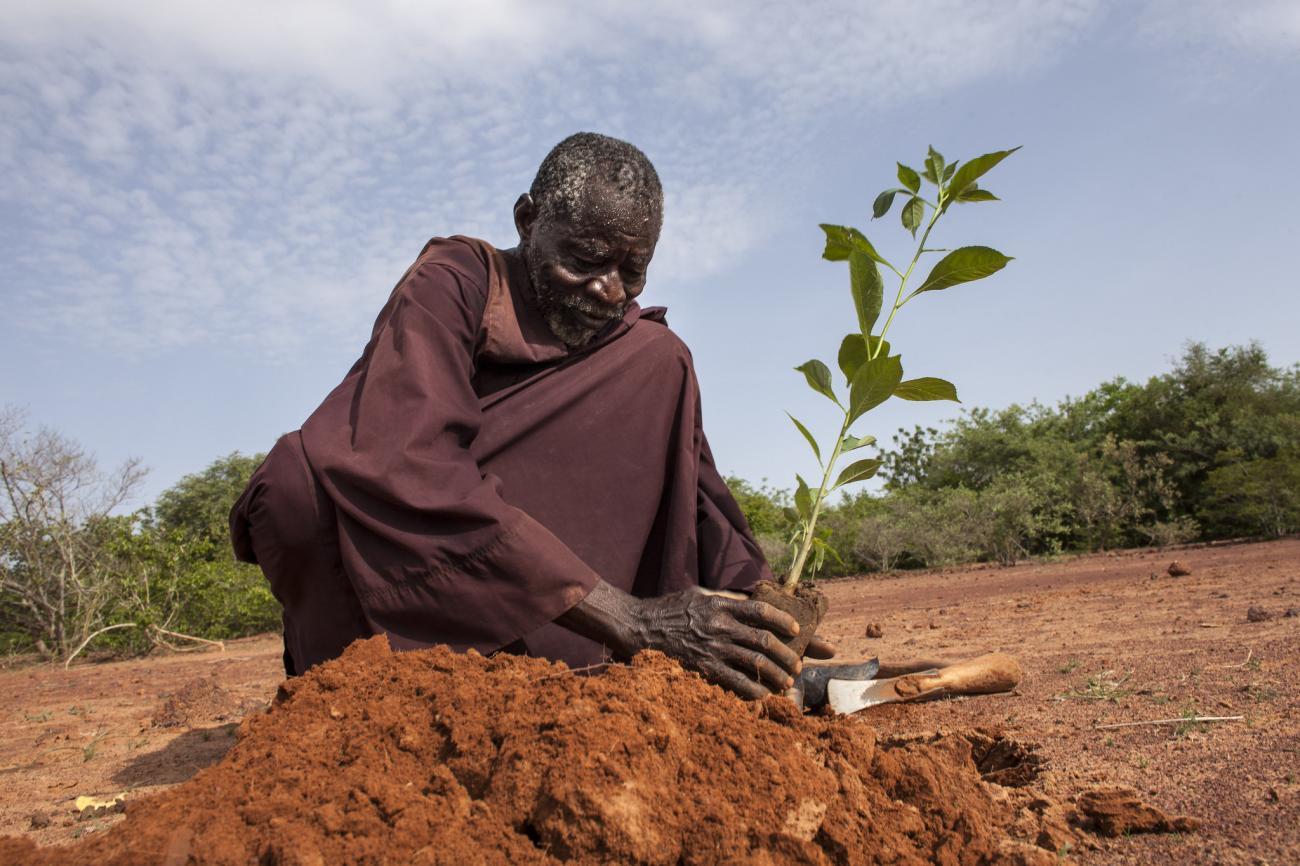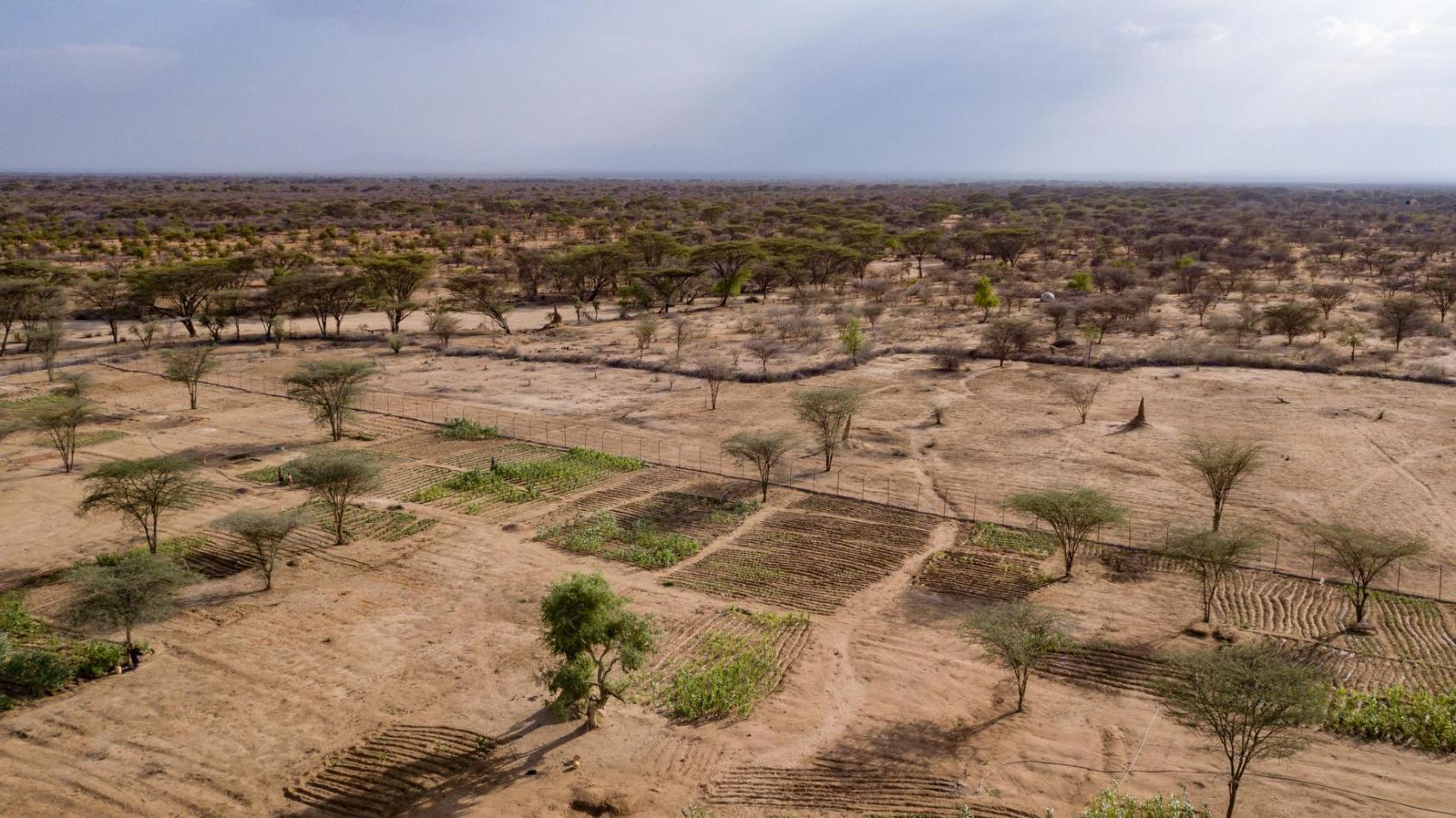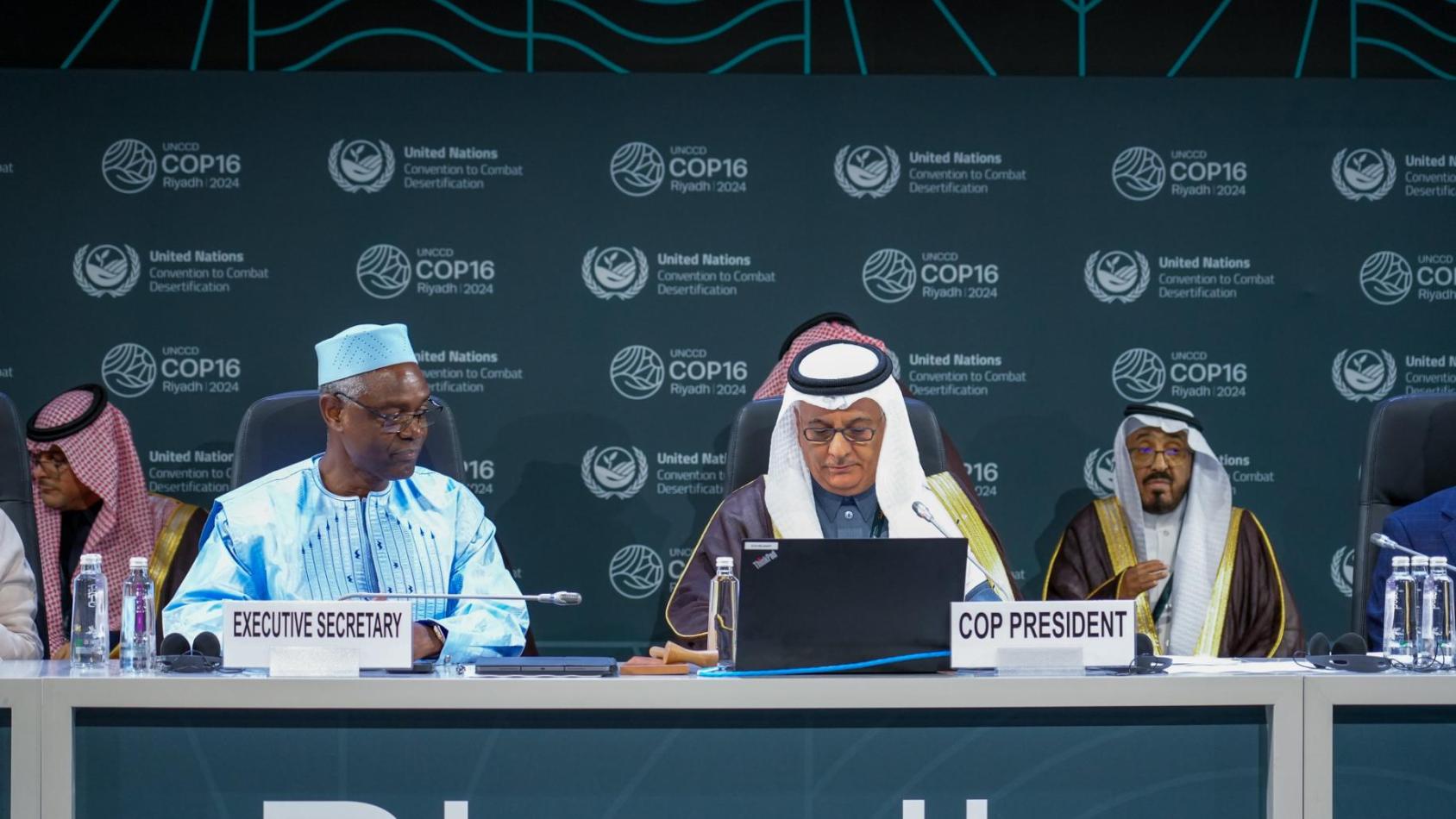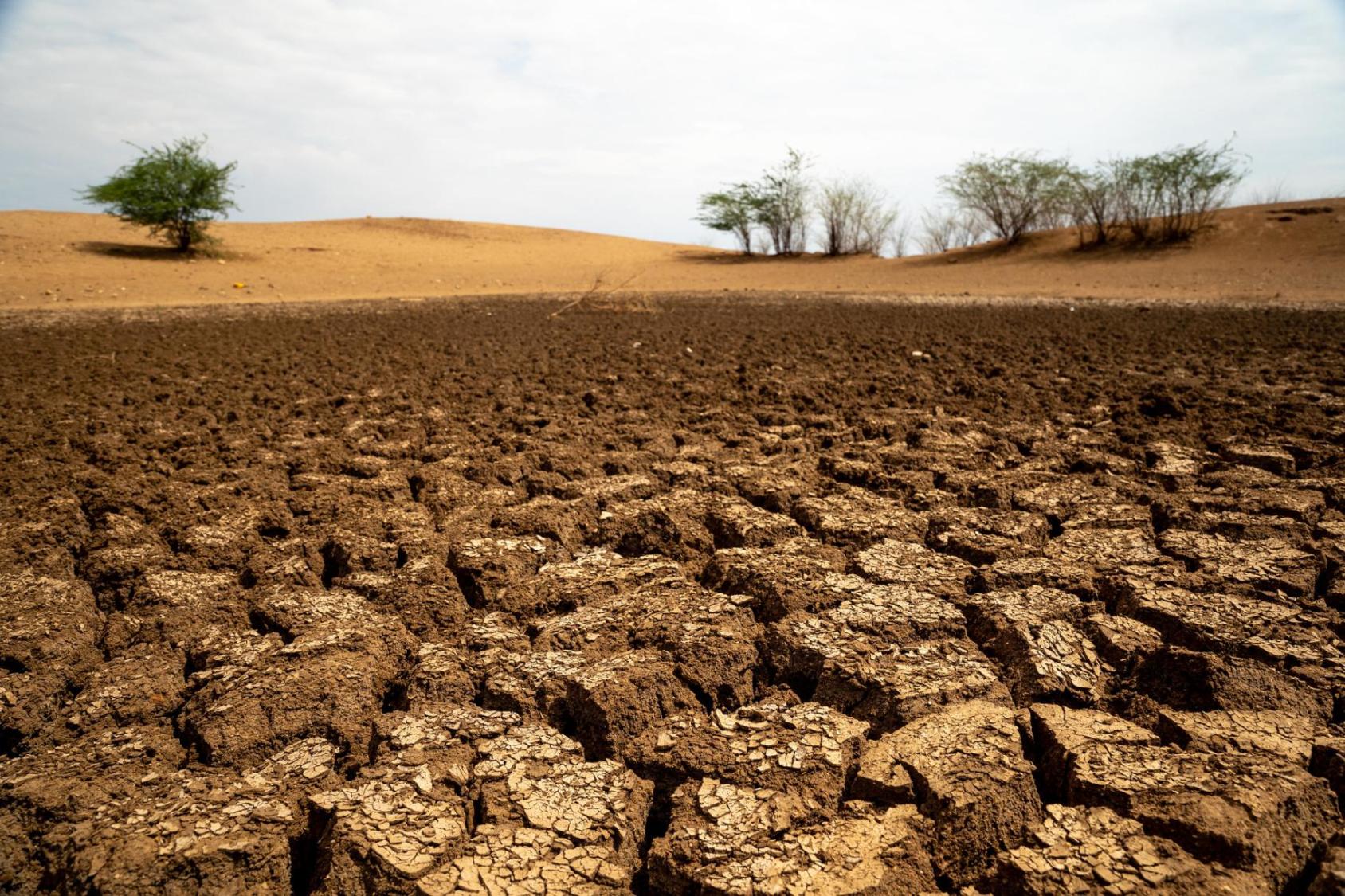All for Land and Land for All - Why our survival hinges on restoring our land

Our land is our home and our future. We depend on it for all aspects of our lives, from food, freshwater and livelihoods, to energy, commerce and building materials. Humans use 70 per cent of all available ice-free land on earth, but we are rapidly degrading this land through heavy exploitation, deforestation, pollution, and climate change, which is leading to increased droughts and desertification.
Desertification presents enormous challenges for the billions of people who depend on the land for survival. Worsening droughts are threatening to reduce the agricultural yields that provide 95 per cent of our food supply.
If we fail to act now, we will be unable to feed and sustain the growing global population and preserve biodiversity.
This year, the United Nations Convention to Combat Desertification (UNCCD) marks its 30th anniversary at the 16th Conference of the Parties (COP16) in Riyadh, Saudi Arabia where reversing desertification and land degradation will be the top priority of the convening parties. Addressing desertification is not merely a matter of restoring degraded lands; it is a complex issue intertwined with broader systemic challenges such as unsustainable agricultural practices, deforestation, climate change, and overconsumption. It requires a holistic approach that addresses these interconnected factors simultaneously.
For example, sustainable agriculture practices can help to reduce soil erosion and improve land productivity. Similarly, investing in renewable energy sources can mitigate climate change, which is a major driver of desertification. Implementing effective land use planning and conservation strategies can protect ecosystems and prevent further degradation. Moreover, investing in drought resilience is among the most cost-effective actions countries and regions can take and has the potential to yield returns of up to ten times the initial investment.

With 95 per cent of its land classified as desert, The Kingdom of Saudi Arabia (KSA) knows firsthand what is at stake and will lead COP16 efforts to advance integrated solutions to land degradation, desertification and drought (DLDD) that recognize the interconnected nature of their root causes.
Particularly vulnerable to the impacts of climate change, the KSA, alongside other countries in the Middle East and North Africa (MENA) region, has shown leadership in tackling these challenges. Through ventures such as the Saudi Green Initiative and the Middle East Green Initiative, Saudi Arabia is addressing not only desertification by increasing green areas, forests and restoring lost native vegetation, but also biodiversity loss and climate change because the benefits that come with restoring the land combat all three challenges.
Through the G20 Global Land Initiative, Saudi Arabia has also been leading global efforts to reduce degraded land by 50 per cent by 2040. The G20 countries have prioritised the sharing of knowledge, best practices, and policy implementation towards achieving ecosystem-based solutions with people at the centre. They have identified sustainable practices that allow us to manage our resources without converting any more land.

The UN system is advancing such integrated and cohesive approaches to tackling DLDD in the KSA and MENA region. For example, the United Nations Environment Programme (UNEP) has developed afforestation strategies, drought classification methodologies, and raised awareness of land degradation. It also played a pivotal role in enhancing sand and dust storm risk assessments and establishing the Sand and Dust Storm Warning Advisory and Assessment System Gulf Cooperation Council Regional Center (SDS-WAS GCC), aligned with global guidelines. UNEP has further supported Saudi Arabia’s cloud seeding program through technical expertise and training.
The United Nations Food and Agriculture Organization (FAO) has significantly advanced sustainable land management (SLM) in Saudi Arabia by developing tailored frameworks, building capacities, and engaging communities. The Sustainable Rural Agriculture Development Programme (SRADP), aligned with Saudi Vision 2030, fosters agripreneurship and nature-positive solutions. Collaborating with the World Meteorological Organization (WMO)-accredited Sand and Dust Storm Warning Regional Center and other UN agencies, FAO promotes strategies that integrate climate, biodiversity, and land management for sustainable development.
The United Nations Development Programme (UNDP) contributes through the Integrated Water Resources Management Project, securing and identifying water resources to achieve Sustainable Development Goal 6. In partnership with UNCCD and the KSA Ministry of Environment Water and Agriculture, UNDP brings scientists and decision-makers together to address drought, land degradation, and desertification, focusing on enhancing land productivity and achieving land neutrality in hyper-arid environments.
Additionally, the UN and the World Bank are promoting transboundary cooperation to address climate-related risks, including water scarcity and land degradation in the Euphrates-Tigris Basin shared by Iran, Iraq, Syria, and Türkiye. The programme aims to reduce critical multi-dimensional risks of crisis in the Basin and establish conditions for regional cooperation on climate adaptation and natural resource management.

COP16 is a landmark opportunity for countries to come together and make collective decisions to advance the holistic approaches and initiatives needed to achieve land restoration. Key to the success of these initiatives will be the buy-in and engagement of all stakeholders. Convening diverse actors such as companies, cities, civil society, and countries is the unique value addition of the UN system, and will allow for multisector focus and subsequently the implementation of responsive strategies and effective policies long after the COP in Riyadh.
Uniquely, all three of the Rio Conventions will meet this year. Two have already been held – one in Colombia to address biodiversity loss and the other in Azerbaijan to address the climate crisis - both of which have solutions directly connected to sustainable land management. The third, and historically the underserved and unseen Convention to Combat Desertification, will conclude the Rio Trio with a focus on boosting drought resilience and land restoration. If we restore life to our land, we can turn the tide on the triple threat of pollution, climate change and biodiversity loss and realise the Sustainable Development Goals.
This article was written by United Nations Resident Coordinator in Saudi Arabia Mohamed El Zarkani.













